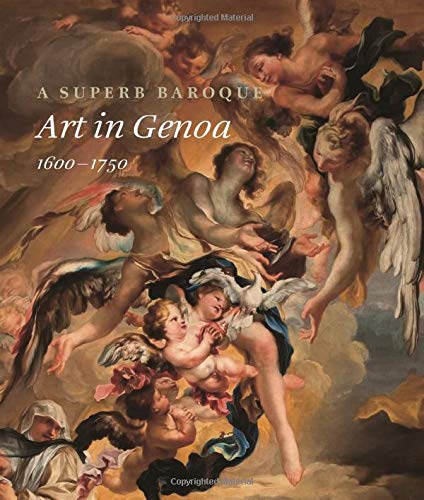A Superb Baroque | Jonathan Bober, Piero Boccardo, Franco Boggero, Peter Lukehart, Andrea Zanini

Detalii A Superb Baroque | Jonathan
carturesti.ro
365 Lei
Carte straina
Princeton University Press
A Superb Baroque | Jonathan - Disponibil la carturesti.ro
Pe YEO găsești A Superb Baroque | Jonathan de la Princeton University Press, în categoria Carte straina.
Indiferent de nevoile tale, A Superb Baroque | Jonathan Bober, Piero Boccardo, Franco Boggero, Peter Lukehart, Andrea Zanini din categoria Carte straina îți poate aduce un echilibru perfect între calitate și preț, cu avantaje practice și moderne.
Caracteristici și Avantaje ale produsului A Superb Baroque | Jonathan
- Departament: gaming-carti-birotica
- Ideal pentru pasionații de jocuri, birotică și distracție online.
Preț: 365 Lei
Caracteristicile produsului A Superb Baroque | Jonathan
- Brand: Princeton University Press
- Categoria: Carte straina
- Magazin: carturesti.ro
- Ultima actualizare: 27-10-2025 01:24:43
Comandă A Superb Baroque | Jonathan Online, Simplu și Rapid
Prin intermediul platformei YEO, poți comanda A Superb Baroque | Jonathan de la carturesti.ro rapid și în siguranță. Bucură-te de o experiență de cumpărături online optimizată și descoperă cele mai bune oferte actualizate constant.
Descriere magazin:
Genoa completed its transformation from a faded maritime power into a thriving banking center for Europe in the seventeenth century. The wealth accumulated by its leading families spurred investment in the visual arts on an enormous scale. This volume explores how artists both foreign and native created a singularly rich and extravagant expression of the baroque in works of extraordinary variety, sumptuousness, and exuberance. This art, however, has remained largely hidden behind the facades of the city\'s palaces, with few works, apart from those by the school\'s great expatriates, found beyond its borders. As a result, the Genoese baroque has been insufficiently considered or appreciated.Lavishly illustrated, A Superb Baroque is comprehensive, encompassing all the major media and participants. Presented are some 140 select works by the celebrated foreigners drawn to the city and its flourishing environment―from Peter Paul Rubens, Anthony van Dyck, and Giulio Cesare Procaccini to Pierre Puget, Marcantonio Franceschini, and Francesco Solimena; by the major Genoese masters active for much of their careers in other settings―Bernardo Strozzi, Giovanni Benedetto Castiglione, Filippo Parodi, and Alessandro Magnasco; and above all by the brilliantly synthetic but unfamiliar masters who worked primarily in Genoa itself―Gioacchino Assereto, Valerio Castello, Domenico Piola, and Gregorio De Ferrari. Offering three levels of exploration―essays that frame and interpret, section introductions that characterize principal currents and stages, and texts that elucidate individual works―this volume is by far the most extensive study of the Genoese baroque in the English language.

Produse asemănătoare

A Superb Baroque: Art in Genoa, 1600-1750, Hardcover/Jonathan Bober
![]() elefant.ro
elefant.ro
Actualizat in 27/10/2025
468.99 Lei

A Superb Baroque | Jonathan Bober, Piero Boccardo, Franco Boggero, Peter Lukehart, Andrea Zanini
![]() carturesti.ro
carturesti.ro
Actualizat in 27/10/2025
365 Lei
Produse marca Princeton University Press

Rocks and Rock Formations: A Key to Identification, Paperback/Jürg Meyer
![]() elefant.ro
elefant.ro
Actualizat in 28/10/2025
122.99 Lei

The World Atlas of Trees and Forests. Exploring Earth\'s Forest Ecosystems, Hardback/Jerome Chave
![]() elefant.ro
elefant.ro
Actualizat in 28/10/2025
324.99 Lei

Irresistible Fairy Tale. The Cultural and Social History of a Genre, Paperback/Jack Zipes
![]() elefant.ro
elefant.ro
Actualizat in 28/10/2025
144.99 Lei

Field Guide to Coastal Wildflowers of Britain, Ireland and Northwest Europe, Paperback/Andrew Cleave
![]() elefant.ro
elefant.ro
Actualizat in 28/10/2025
144.99 Lei

Macroeconomics and Financial Crises. Bound Together by Information Dynamics, Hardback/Guillermo L. Ordonez
![]() elefant.ro
elefant.ro
Actualizat in 28/10/2025
216.99 Lei

Flying Snakes and Griffin Claws. And Other Classical Myths, Historical Oddities, and Scientific Curiosities, Paperback/Adrienne Mayor
![]() elefant.ro
elefant.ro
Actualizat in 28/10/2025
122.99 Lei